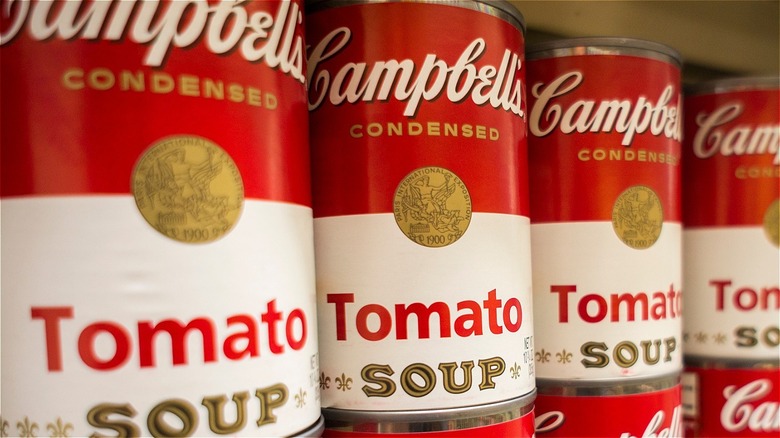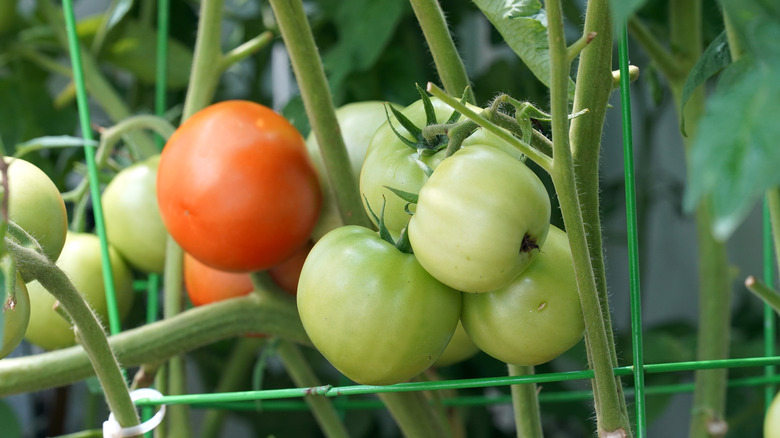The Surprising History Of Campbell's Tomatoes
Campbell's and New Jersey are indelibly linked. The revolutionary soup company started in New Jersey, and its headquarters are still located in the Garden State today (via Campbell's). However, Campbell's put New Jersey on the map with more than just the state's affiliation with the brand. Campbell's also made New Jersey an important player in the tomato game.
In 1869, the Campbell Soup Company's predecessor, Anderson & Campbell, formed in Camden, New Jersey. The two namesake founders were a produce vendor and a canner. The new company's signature product? New Jersey beefsteak tomatoes. In 1895, the company turned those tomatoes into jars of ready-to-eat tomato soup. Two years later, the legendary soup brand began packaging it in cans, according to the Campbell's website.
In the beginning, Campbell's sourced its tomatoes, for use in its sauces and soups, from local, New Jersey farms, Modern Farmer reports. However, in the early 1900s, leadership realized the company was in a prime spot to better control ingredient quality and research. And so, the Campbell's tomato breeding program in Cinnaminson, New Jersey, was born. The program and associated research facility developed better-tasting tomatoes and higher-yielding, more disease-resistance tomato plants. Many of the resulting tomato varieties would receive national acclaim. At one point, nearly three-fourths of U.S. commercial growers were planting Campbells-developed tomatoes, including household names like Hunt's and Heinz.
Campbell's tomato research today
While, in the past, Campbell's tomato research was all focused on a higher quality and greater yield, today, Campbell's places a high emphasis on sustainability research and innovation. According to the brand, it established the Agriculture Sustainability Program at Campbell's in 2012, which focuses on important agricultural issues such as fertilizer use, greenhouse gases, and water use. As a result of the brand's continued innovation, it's discovered that farmers can use approximately 25% less water growing Campbell's tomatoes when using drip irrigation versus traditional irrigation methods, which also just so happens to cut down greenhouse gas emissions by 25% as well. The Agriculture Sustainability Program at Campbell's has additionally tested more eco-friendly pest control options, such as installing habitats for owls and other birds that can help reduce the pest population around tomato farms.
Campbell's focuses most of its agricultural sustainability research on tomatoes, with the brand noting that the high market demand for tomatoes makes sustainability and environmentally-friendly agricultural methods crucial to the future.

